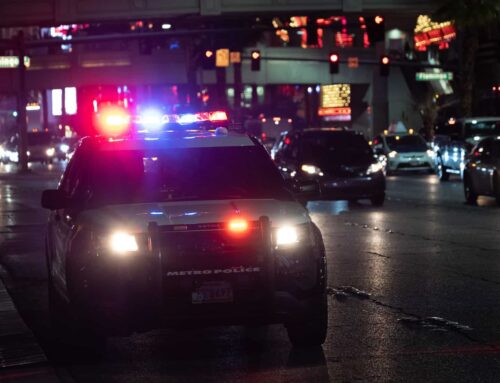Unless you have a portable breathalyzer handy, you’re unlikely to be able to judge your blood alcohol content with any degree of accuracy. This can be a problem after a night of steady drinking. While you might feel up to the task of driving yourself home after knocking back a few drinks over the course of several hours, you can’t confirm that you’ll be able to do so without running afoul of the law. Once you’re on the road, you’re liable to be arrested on suspicion of impaired driving as long as your blood alcohol content remains above your state’s legal limit. If you’re pulled over while you’re in a state of questionable sobriety, your first impulse may be to confound the officer on the scene by refusing to submit to an initial roadside breathalyzer test.
There are plenty of compelling reasons for doing so. In most states, the results of these tests aren’t admissible in court. Portable breathalyzers aren’t nearly as accurate as the larger stationary machines that most police precincts keep on hand. Like the field sobriety tests that officers typically ask drunk-driving suspects to perform, portable breathalyzers are merely used to prove probable cause for an impaired driving arrest. In most jurisdictions, there are no legal penalties for refusing to take a breathalyzer test in the field. If you refuse to take the test, the officer on the scene will probably take you into custody under the assumption that the mandatory in-station breathalyzer test will show that your blood alcohol content is above the legal limit.
If you choose to take the test and it shows that your blood alcohol content is below the legal limit, the officer may still choose to arrest you on the grounds that you failed other elements of your field sobriety test. While it’s far harder to prove a DUI charge against a driver who “blows” below the legal limit, it can be done. For instance, the state may argue that the effects of the modest amount of alcohol that you consumed were magnified by the presence of prescription or illegal drugs in your system.
If you’re found to be carrying quantities of such drugs, this may make their case easier. Once you’ve been booked, you may still refuse to take the in-station breathalyzer test. This will likely result in the automatic revocation of your license for a year or more.
Law Dictionary: http://thelawdictionary.org/article/if-i-get-pulled-over-for-dui-should-i-refuse-to-take-a-breathalyzer/#ixzz2cljd50iE






